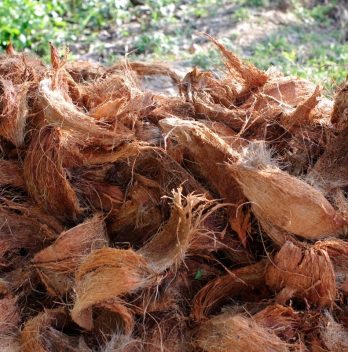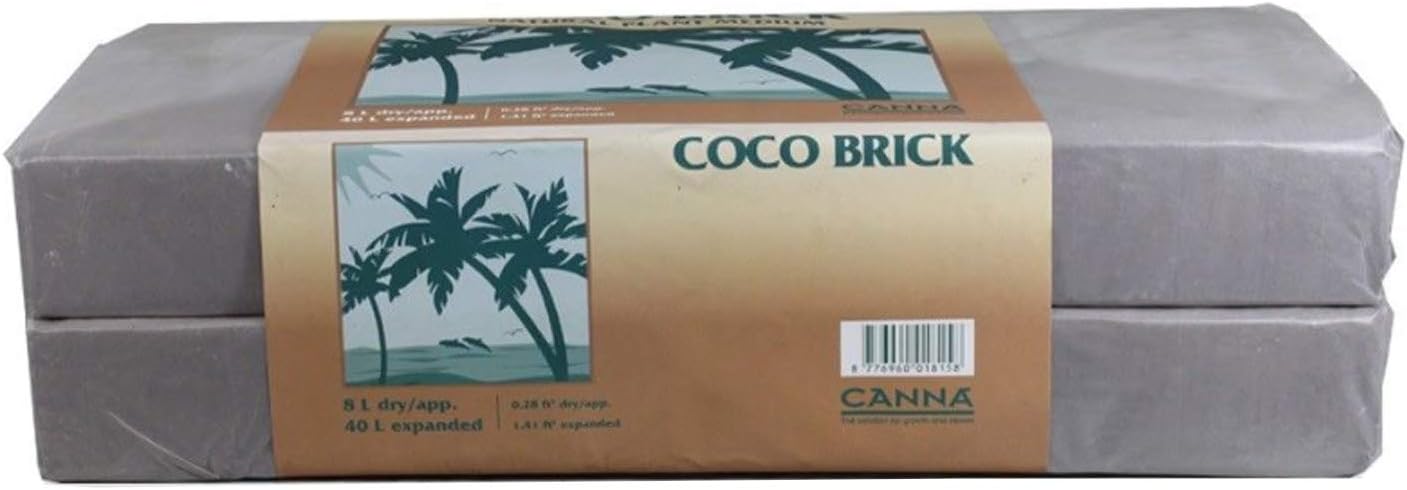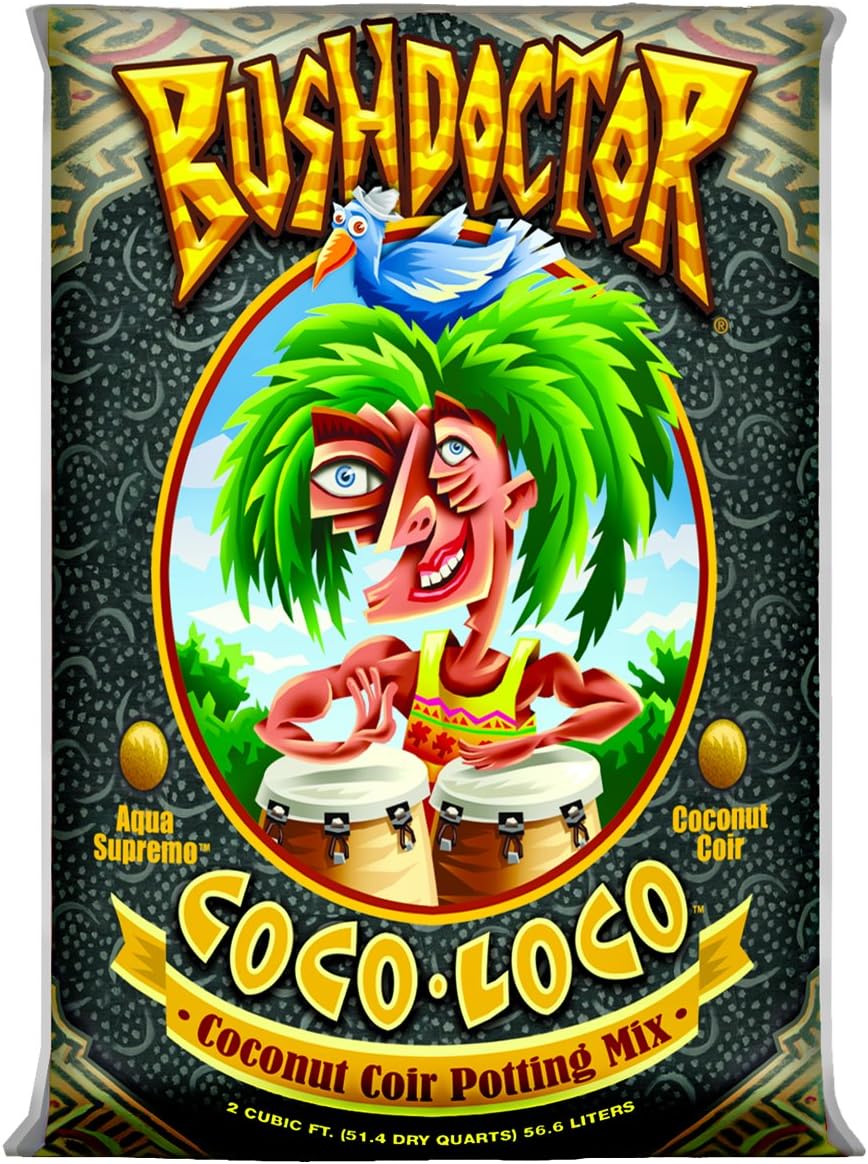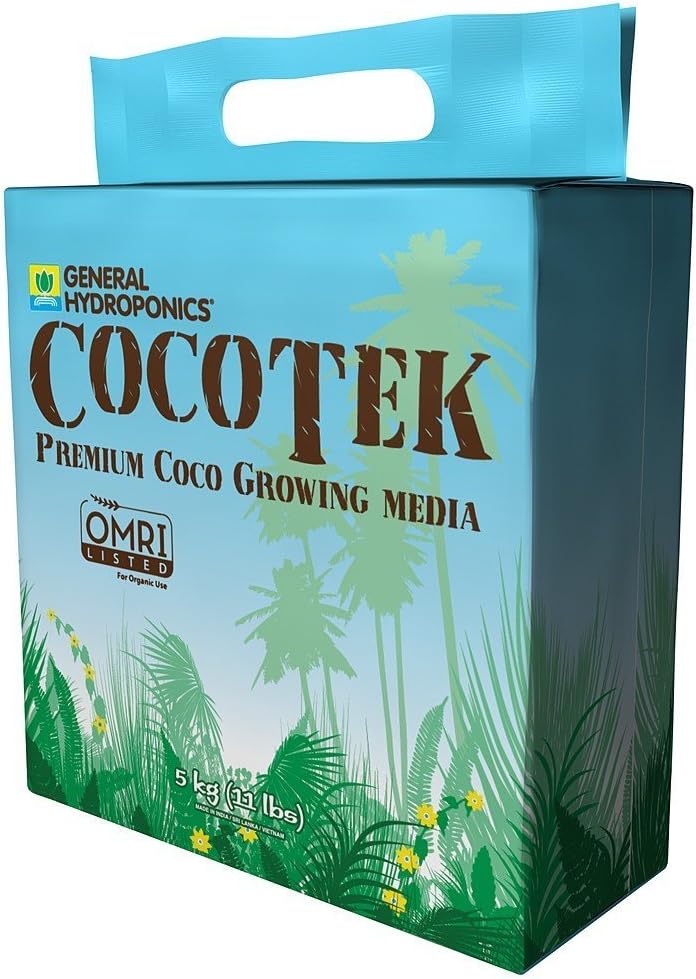In the past decade, high-quality horticultural coconut coir has become popular as a growing medium for greenhouses and hydroponics farmers.
If you love gardening or hydroponics, now is the time to consider using coco coir for your plants. The correct pronunciation or coir is coy-er according to the Cambridge dictionary.
What Is Coconut Coir?
Coir is the fibrous husk and dust that make up the outer layer of a ripe coconut. This part is least seen as it is removed before the fruits arrive in the market. But it is available as a soilless growing medium.
Coconut coir is common in India and Sri Lanka. These are areas where the Cocos Nucifera coconut palm grows in plenty. The growing medium can either work alone or mixed with another material. This material is perlite.
Why Use Coconut Coir?
In hydroponics and pot gardening, coir is a substitute for peat moss. It is a renewable resource with a more neutral pH. It helps manage the nutrients in the hydroponics systems. Coir decomposes slower than peat moss releasing its nutrients in a slow economic way. This is one of the greatest benefits of using coir in hydroponics because the nutrient solution has a huge impact on growing success.
Types Of Coco Coir
Every time you buy coconut coir, you are buying three types mixed – the fiber, pith, and coco chips. These three together provide a powerful growing medium very healthy to plant growth.
- Coco pith or coco peat is the fine ground coconut or pear moss. It’s absorbent and fine with small particles. It must age well before it goes to the farm.
- Coco fiber is not very absorbent and adds air pockets into the growing medium. These air pockets provide oxygen to the root zone. This fiber breaks down fast with the air pockets decreasing over time.
- Coco chips are a hybrid between the coco fiber and coco peat. They are large pieces that create air pockets and absorb the water well. It helps keep your plants well hydrated.

The coconut coir must be a mixture of these three types to achieve the best results.
Find more information about How To Use Coconut Coir In Gardening
Where To Buy Coco Coir- Recommended Products
Here are a few of the best-recommended products.
CANNA Coco Brick
CANNA is one of the top coconut coir providers. This company monitors the production of their coir to ensure it is well dried, aged, and flushed of all salts. They package their coir in 40L expandable bricks. You will have to rehydrate the medium after receiving it.
FOXFARM FX14100 Coco Loco
Fox is also a top coir provider. Just like CANNA they track their product to ensure it is well dried, flushed out salts, and aged before packaging it. FOXFARM packages their product in a 2 cu ft. expanded bag.
General Hydroponics COCOTEK Coco Growing Media
COCOTEK consists of all three types of compressed media. It has low levels of sodium and one of the best for first-time growers. This is a cheaper option compared to CANNA and FOX FARM. It is packaged in 5kgs with a decent mix of coco fibers and pith.
FAQs
Coconut coir, also known as coco coir, is a natural material that can be used in a variety of ways. It is made up of the fibres of coconut shells and is used in many different industries, including in agriculture, horticulture, and forestry. For example, coconut coir is used as a soil amendment to improve soil structure and nutrient levels. This helps to create fertile soil and increases crop yield. It’s a natural and organic alternative to plastic mulch, which can be harmful to both plants and animals. Coconut coir is made from the stalks of the coconut palm tree. It’s a renewable resource that is naturally occurring in tropical climates. The production of coconut coir is highly labour intensive, as the coconut fibres need to be removed from the coconut shell before they can be processed into coconut coir. The majority of coconut coir is produced in India and Indonesia. In recent years, production has increased significantly, with India alone producing about 80,000 tonnes of coconut coir per year. Coconut coir is primarily used in agricultural applications such as soil amendment and organic fertiliser. It is also used in horticultural applications such as garden mulch, ornamental plant pots, and as a growing medium for houseplants. It is also used in forestry applications such as tree planting, and it is commonly known as coconut fibre or coco fibre. Coconut coir benefits The benefits of coconut coir are numerous. Nutrients Coconut coir is an excellent source of potassium, magnesium, phosphorous, and calcium. The stalks are cut, dried and shredded into fine pieces. The shredded coconut is then mixed with water to create a thick, clay-like mixture. This mixture is then spread over the ground as mulch to help with soil building, prevent weeds and retain moisture. It is considered to be a highly efficient organic growing medium, which improves soil quality and reduces the need for chemicals. The fibres have many beneficial uses in horticulture, including as a mulch and for growing houseplants. The main benefits of using coconut coir for plants include: improving soil structure, reducing disease, improving water retention, reducing weed growth, reducing the need for chemical fertilisers, enhancing the appearance of plants, increased yields and pest control. Coconut coir can be used to make a wide range of different products and there are many ways to use it. It is a very versatile material, so you can easily adapt its uses for whatever purpose you wish. Coconut coir is actually a byproduct of coconut oil processing. It’s similar to chaff or straw, and can be used as mulch or composted. There are many different types of coconut coir, and most of them are made from the husks of mature coconuts. Coconut husk is a material that has been used for centuries in making a variety of products.What is coconut coir good for?
How is it used?
Why Is Coconut Coir So Great?
Are there different types of coconut coir?
Conclusion
Whether you choose to use this media in hydroponic or in containers, by itself or mixed with other media, the coconut coir works magic. It plays a key role in providing an ideal growing environment for your plants.








